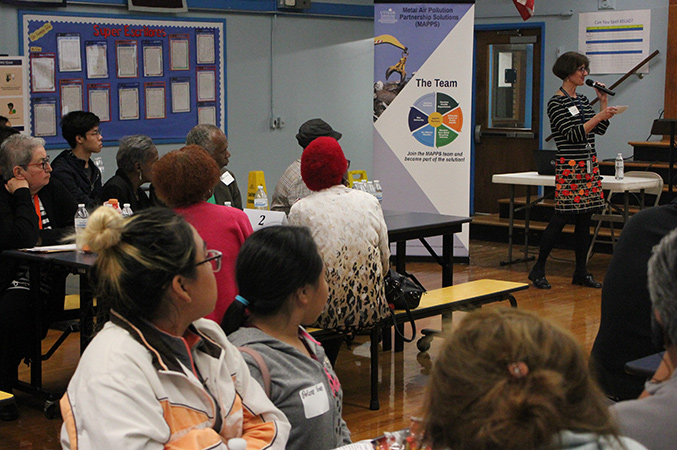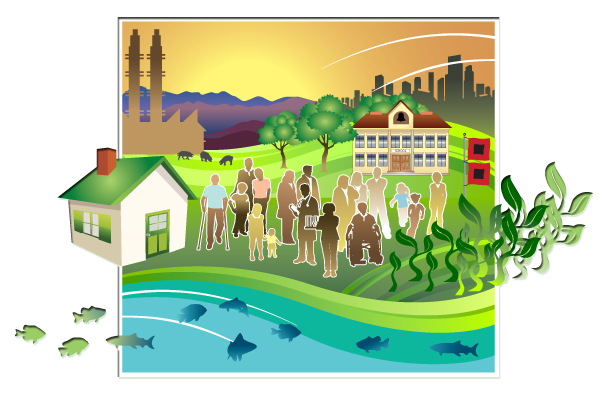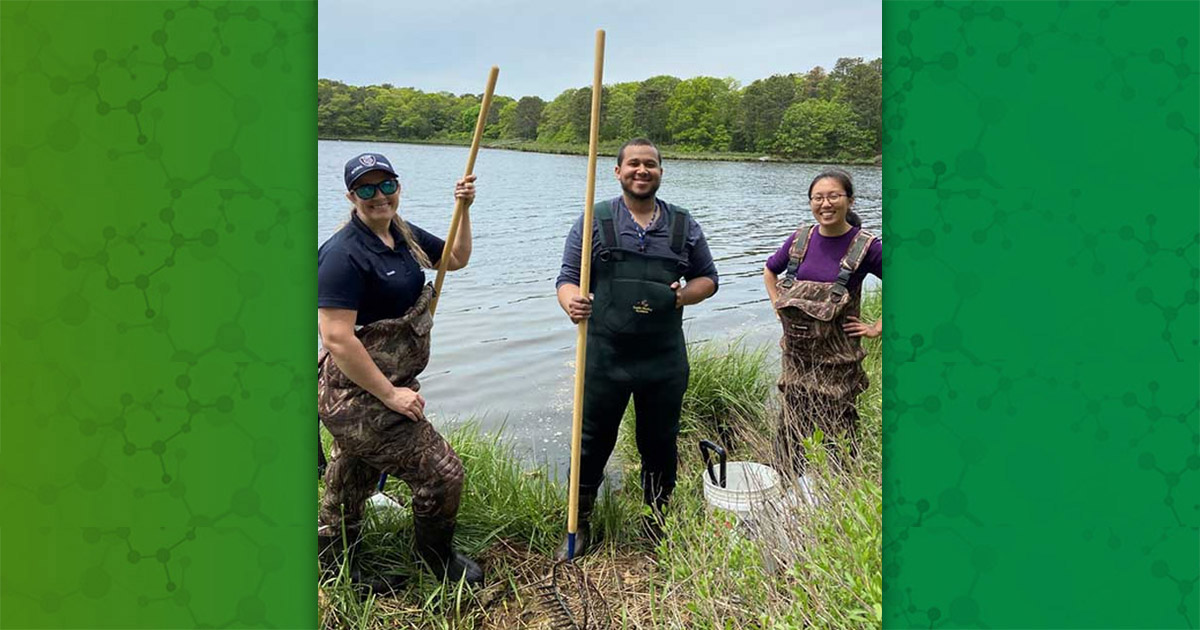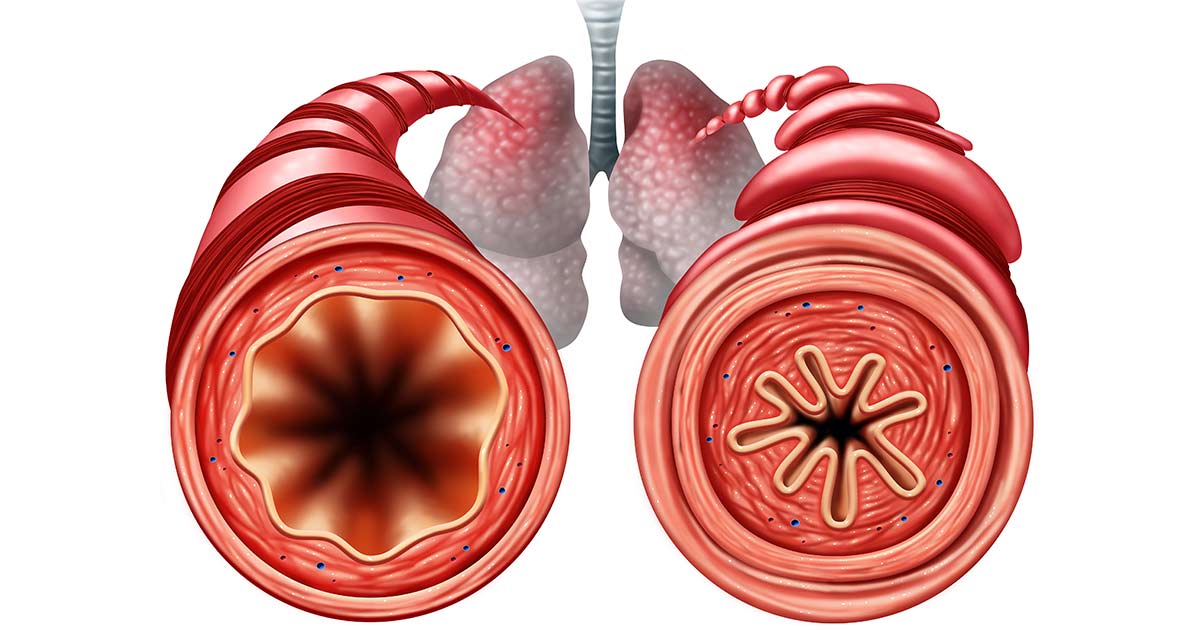Community Engagement Informs Action Plan to Address Air Pollution From Metal Recycling Facilities
Community members, community leaders, metal recycling facility employees, and academic researchers partnered to develop a public health action plan to address residents’ concerns about metal recycling facilities in and near several low-income communities of color in Houston. Because of this work, metal recycling facilities modified their practices to reduce pollution and created new resources to improve communication between facility management and the residents affected by the facilities.
An April 2020 paper highlighted the research teams’ partnership building process. The feature described how the team — composed of academics, Houston Health Department officials, and members of a local environmental justice advocacy group — worked with metal recyclers and community members to respond to community concerns about pollution from the metal recycling facilities. While there are more than 150 metal recycling facilities in Houston, the study focused on those near the low-income neighborhoods engaged in the study. The partners established the Metal Air Pollution Partnership Solutions (MAPPS) study, a community-based participatory research project to address concerns about air pollution. This unique partnership created a community advisory board (CAB) that engaged all parties involved, including members of the metal recycling industry.
Since 2020, the team has observed the benefits of a co-developed public health action plan. In a June 2023 paper, the team describes their collaborative effort to develop a public health action plan, which has been used to sustainably address community concerns.

Residents attend a community a MAPPS forum. (Photo courtesy of Elaine Symanski)
New Healthy People 2030 Infographics on Social Determinants of Health
The Office of Disease Prevention and Health Promotion’s Healthy People 2030 initiative released infographics in May on five topics related to social determinants of health (SDOH):
- Access to foods that support healthy dietary patterns.
- Access to health services.
- Civic participation.
- Early childhood development and education.
- Employment.
Each infographic represents a literature summary from one of Healthy People 2030’s five SDOH domains: economic stability, education access and quality, health care access and quality, neighborhood and built environment, and social and community context. For example, the infographic on food access highlights how the availability of healthy food, food cost, transportation, and community programs influence a person’s access to healthy, safe, affordable food. The corresponding literature summary goes into more detail, describing negative health outcomes, such as obesity and diabetes, that may result from a lack of access to healthy foods and how the food environment surrounding a school may affect children. A literature summary on environmental conditions includes information on water and air quality, weather and climate change, and strategies for improvements, although there is not yet a corresponding infographic. Healthy People 2030 is a U.S. federal initiative that sets data-driven objectives to improve the nation’s health and well-being.
Waste Management Facility Near Environmental Justice Community Denied Permission to Continue Open Burn Operations
In June, the Louisiana Department of Environmental Quality (LDEQ) made a final decision on a waste management facility’s permit renewal, denying Clean Harbors Colfax the ability to continue its open burn and open detonation operations. The decision came after a public comment period and community efforts to document pollution levels from the facility, including a collaboration with NIEHS-funded researchers to gather data from nearby residents about how pollution from the facility was affecting their lives. Residents of Colfax, a rural community within a few miles of the facility, reported respiratory problems, skin problems, home damage, and other health concerns. A May 2022 paper describes how the team found that the spread of contaminants from the burn facility overlapped with residents’ health concerns.
New Issue Brief on Achieving Environmental Health Equity
The American Public Health Association’s Environmental Health & Equity Collaborative, with funding from the U.S. Centers for Disease Control and Prevention (CDC), published an issue brief on health disparities and their causes in spring 2023. The issue brief emphasizes the importance of public health organizations taking action toward health equity if they want to provide effective environmental health services. The publication describes the need for public health action, including in environmental justice, and lists opportunities for action for public health organizations. The opportunities are grouped according to the CDC’s 10 Essential Public Health Services. For example, within the essential public health service of addressing health problems affecting the population, there are calls to action to meet with, listen to, and work with and for communities affected by environmental injustice and to integrate environmental justice criteria into funding requirements. Other calls to action include engaging in environmental public health workforce development and developing environmental health metrics in partnership with communities. You can read a one-page version of the opportunities for public health action. The Environmental Health & Equity Collaborative promotes environmental health by sharing resources on topics such as climate, environmental health awareness and communication, and the environmental health workforce.
U.S. Environmental Protection Agency to Form National Environmental Youth Advisory Council
The U.S. Environmental Protection Agency (EPA) will establish a National Environmental Youth Advisory Council, which will provide advice and recommendations to the agency on how to improve efforts around environmental issues, such as climate change, as they affect youth communities. The council will help ensure the inclusion of youth perspectives in EPA’s decision-making as the agency works toward ensuring people in the U.S. have access to clean air, safe water, and healthy land. Applications are due August 22, and applicants must be between 16 and 29 years old on that date. At least half of the 16 council members will come from, reside in, or do most of their work in disadvantaged communities. For more information on how to apply or nominate someone, see the “How to Apply” section of the National Environmental Youth Advisory Council webpage. Additionally, EPA will host a webinar regarding applications on August 7. Registration is available.

PEPH Environmental Health Chat Podcast Series
The Exposome and Health (Part 1)
PEPH Environmental Health Chat Podcast Series
The Exposome and Health (Part 1)
In part one of our two-episode podcast series on the exposome, Douglas Walker, Ph.D., will discuss how the field of exposomics is transforming environmental health research. Walker also talks about challenges in the field, such integrating large datasets, and opportunities for exposomic research to improve public health. Listen to the latest podcast on the exposome and health.

PEPH Grantee Highlight
Denae King, Ph.D.
Growing up in a community affected by industrial pollution inspired Danae King, Ph.D., to pursue a career in public health. She is now an environmental justice researcher at the Bullard Center for Environmental and Climate Justice where she works to understand the effects of environmental issues on communities of color, like the one she grew up in. King also supports the Bullard Center’s Historically Black Colleges and Universities Consortium’s Worker Training Program-funded employment training program and conducts research on maternal health issues with the Maternal and Infant Environmental Health Riskscape Research Center.
Funding Opportunities
Time-Sensitive Research Opportunities in Environmental Health Sciences (R21 Clinical Trial Not Allowed)
Supports research in environmental health science in which an event has or will imminently occur that provides a limited window of opportunity to collect samples and data to support the assessment of exposures and human health impact. The goal of the program is to characterize initial exposures, collect human biological samples, or collect human health and exposure data in order to provide critical information to understand exposure-health outcome relationships, with the goal of providing data that will facilitate timely action to protect public health. The program also supports the use of innovative techniques (hazard identification, sensing and mitigation technologies) that are uniquely valuable for deployment at a time of disaster to inform our understanding of the human health impacts of the disaster.
Deadlines: April 3, 2023; June 1, 2023
Lasker Clinical Research Scholars Program (Si2/R00 Clinical Trial Optional)
The Lasker Clinical Research Scholars program will offer applicants the opportunity to compete for a unique combination of intramural and extramural resources for clinical research. The program will support a small number of exceptional clinical researchers in the early stages of their independent careers to promote their development as fully independent scientists. The program combines a period of research experience as a tenure-track investigator in the Intramural Research Program with additional years of independent financial support, either within the Intramural Research Program or at an extramural research institution. Successful applicants will receive support in two phases: 1) support for scholars in the Intramural Research Program for up to 5 years, with the possibility of an extension for an additional 2 years; and 2) either continued Intramural Research Program support, or up to 3 years of support to continue research as an independent clinician scientist at an extramural institution.
Deadline: June 24, 2022
STrengthening Research Opportunities for NIH Grants (STRONG): Structured Institutional Needs Assessment and Action Plan Development for Resource Limited Institutions (RLIs) (UC2 - Clinical Trial Not Allowed)
The STRONG-RLI program will support research capacity needs assessments by eligible RLIs. The program will also support recipient institutions in using the results of the assessments to develop action plans for how to meet the identified needs. The program’s goal is to increase competitiveness in the biomedical research enterprise and foster institutional environments conducive to research career development. Awards are intended to support RLIs in analyzing their institutional research capacity needs and strengths. RLIs are defined for this funding opportunity as institutions with a mission to serve historically underrepresented populations in biomedical research that award degrees in the health professions or the sciences related to health, in STEM fields including social and behavioral sciences, and have received up to $25 million (total costs) per year of NIH research project grant support for the past three fiscal years.
Deadline: September 18, 2023
Ruth L. Kirschstein National Research Service Award Institutional Research Training Grant (Parent T32)
Supports development of and/or enhances research training opportunities for individuals interested in careers in biomedical, behavioral or social sciences, clinical research, health services research, or in any other research discipline related to the NIH mission. The NIH Ruth L. Kirschstein National Research Service Award (NRSA) program helps ensure a diverse pool of highly trained scientists is available in appropriate scientific disciplines to address the nation's biomedical, behavioral, and clinical research needs. To accomplish this goal, NRSA training programs are designed to train individuals to conduct research and to prepare for research careers. More information about NRSA programs may be found at the Ruth L. Kirschstein NRSA website.
Deadline: September 25, 2023
Limited Competition: Superfund Hazardous Substance Research and Training Program (P42 Clinical Trial Optional)
NIEHS is announcing the continuation of the Superfund Hazardous Substance Research and Training Program, referred to as Superfund Research Program (SRP) centers. SRP center grants will support problem-based, solution-oriented research centers that consist of multiple, integrated projects representing both the biomedical and environmental science and engineering disciplines; as well as cores tasked with administrative (which includes research translation), data management and analysis, community engagement, research experience and training coordination, and research support functions. Collectively, the center's research projects (maximum of six) should represent a range of basic and applied research that contributes to the problem-based, solution-oriented goal of the center. Each center's central problem should be addressed by the contributions of these projects and each project should have the necessary biomedical and/or environmental science and/or engineering expertise to address the central problem.
Deadline: October 2, 2023
Research Supplements to Promote Diversity in Health-Related Research (Admin Supp — Clinical Trial Not Allowed)
Supports administrative supplements to recruit and support high school, undergraduate and graduate/clinical students, postbaccalaureate and post-Master’s individuals, postdoctoral researchers (including health professionals), and eligible investigators. NIH encourages institutions to diversify their student, postdoctoral researchers, and faculty populations to enhance the participation of individuals from groups that are underrepresented in the biomedical, clinical, behavioral, and social sciences, such as individuals from racial and ethnic groups that have been underrepresented in the sciences; individuals with disabilities; individuals from disadvantaged backgrounds; and women from disadvantaged backgrounds.
Deadlines: October 2, 2023; December 1, 2023; February 1, 2024
Research With Activities Related to Diversity (ReWARD) (R01 Clinical Trial Optional)
ReWARD funding will support research in areas related to the programmatic interests of NIEHS and ongoing diversity, equity, inclusion, and accessibility activities focused on enhancing diversity in the biomedical research enterprise within the U.S. and territories. This funding is intended for individuals with no current NIH research project grant funding at the time of the award. This announcement requires a Plan for Enhancing Diverse Perspectives as part of the application.
Deadlines: June 5, 2023; October 5, 2023; February 5, 2024
Addressing the Impact of Structural Racism and Discrimination on Minority Health and Health Disparities (R01 - Clinical Trial Optional)
Supports intervention research to address the impact of structural racism and discrimination on minority health and health disparities. Research projects must address structural racism and discrimination in one or more NIH-designated populations with health disparities in the U.S. and should address documented disparities in health outcomes. Applications are also expected to provide a conceptual model identifying hypothesized pathways between the structural racism and discrimination and health outcomes. NIEHS is interested in applications that are within scope of its 2018-2023 Strategic Plan, meet the criteria established in this FOA, and focus on intervention research that mitigates or prevents the impacts of environmental exposures on communities due to structural racism and discrimination. Applicants are strongly encouraged to utilize community-engaged research approaches that ensure equity, such as including community partners as part of the research team and having letters of support from community partners. Applications that demonstrate collaborative (i.e., community-academic partnerships) intervention approaches to address the negative health effects of structural racism and discrimination across multiple populations with environmental health disparities will be prioritized.
Deadlines: March 24, 2023; October 10, 2023
Upcoming PEPH-related Events
Annual International Society for Environmental Epidemiology Conference: Connecting the East and the West, One Health in One Planet (Kaohsiung, Taiwan and online). The conference’s sessions, which include posters, keynotes, panel discussions, and oral sessions, will focus on population-level differences in the health effects of environmental exposures, international comparisons, and underrepresented populations. Registration is available.
American Public Health Association’s Annual Meeting and Expo: Creating the Healthiest Nation — Overcoming Social and Ethical Challenges (Atlanta, Georgia and online). This meeting will focus on building public health capacity and addressing health-related social and ethical challenges in the U.S. There will be sessions on children’s environmental health;community perspectives on PFAS contamination; building healthy and resilient communities; integrating measurement, mapping, and community narratives to alleviate environmental health stressors; environmental justice; and other topics related to environmental public health. Registration is available.
Superfund Research Program's Risk E-Learning Webinar Series: Novel Analytical Chemical Approaches for Per- and Polyfluoroalkyl Substances (webinar). The NIEHS Superfund Research Program (SRP) is hosting a risk e-learning webinar series on “Tools for Per- and Polyfluoroalkyl Substances (PFAS) Site Characterization.” This first webinar in the series will feature SRP-funded investigators working on innovative methods to classify and/or quantify PFAS compounds. Registration is open.









